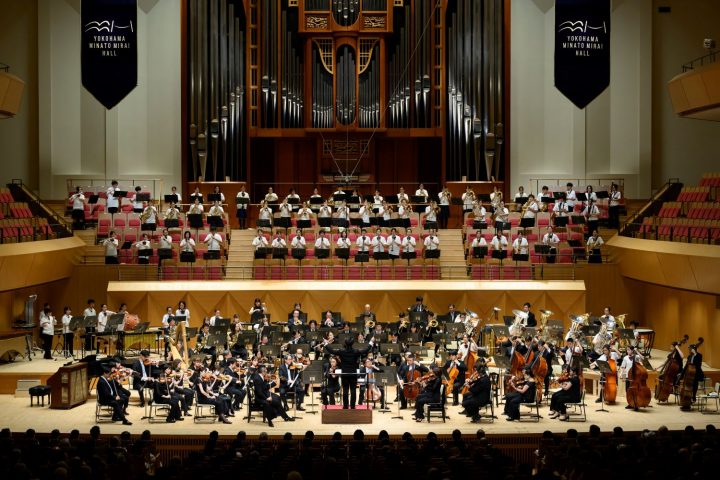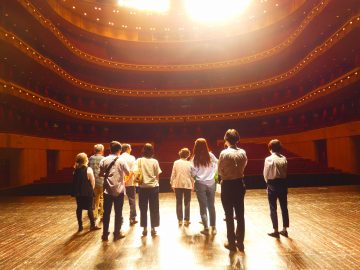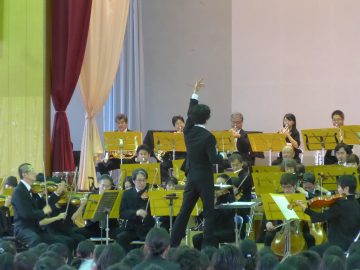A new tradition begins - Kanagawa Philharmonic Orchestra
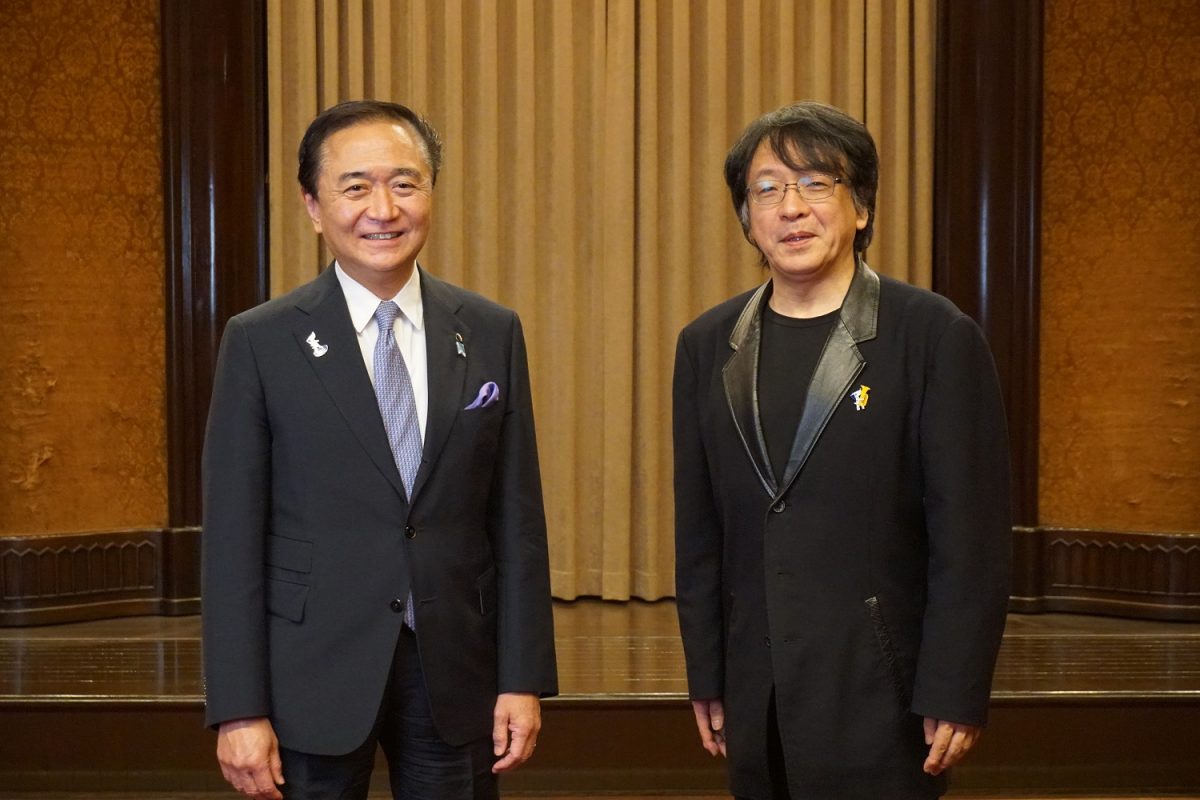
In April 2022, Ryunosuke Numajiri was appointed as the fourth music director of the Kanagawa Philharmonic Orchestra (Kanagawa Phil), and a conversation between Numajiri and Governor Kuroiwa was realized.
We will be sharing with you Mr. Numajiri, who is active at the forefront of the industry both in Japan and overseas, and Governor Kuroiwa, who is the "Kanagawa Philharmonic Cheerleader," about his thoughts on the orchestra, his future aspirations, and some interesting anecdotes.
- Regarding your appointment as the fourth music director, please tell us your honest thoughts when you first heard about it, and how you feel now that you took up the position in April.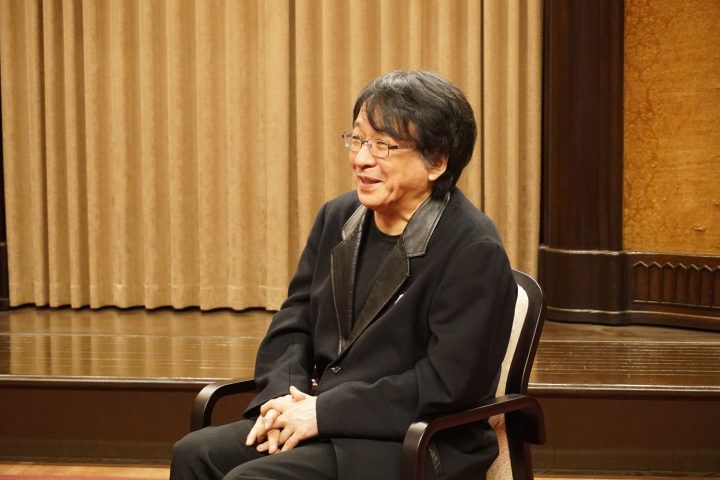
Mr. Numajiri:
To be honest, I was very happy.
I have had a long relationship with the Kanagawa Philharmonic Orchestra, and I performed with them when they held regular concerts at the Prefectural Music Hall. Since 2007, we have performed together in opera productions at the Kanagawa Prefectural Hall, once a year, for 10 years. Opera performances require long rehearsal periods, so I think our bond has naturally deepened. I'm taking over at a time when we no longer have a relationship where we have to force ourselves to look good or be overly considerate, so I'm sure we'll be able to create sparks right from the start.
We are blessed to have the Yokohama Minato Mirai Hall, one of the most prestigious halls, as our home, but we also have the Prefectural Music Hall and Prefectural Citizens' Hall as our second and third homes, allowing us to create programs that are suited to each. Such a blessed environment is rare.
-What is the position of the Kanagawa Philharmonic Orchestra in Kanagawa Prefecture?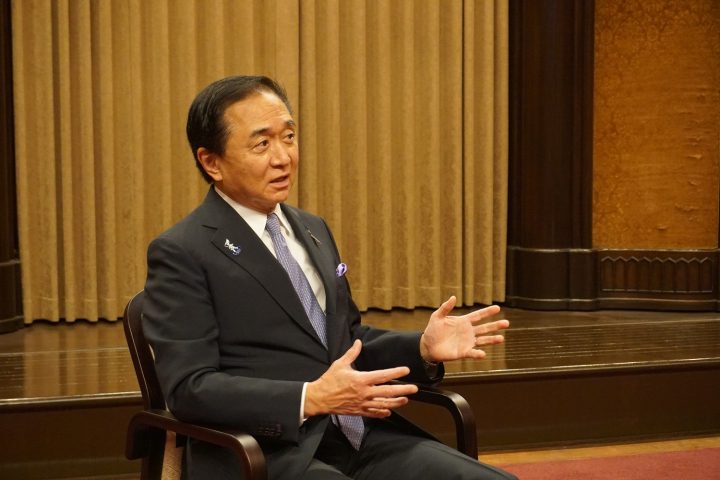
Governor Kuroiwa:
It is the only professional orchestra based in Kanagawa Prefecture and is a valuable asset to the prefecture.
When I became governor 11 years ago, I was asked to become the head cheerleader for the Kanagawa Philharmonic Orchestra, and when I listened carefully to what he had to say, I realized it was quite a difficult task...
In fact, if the Kanagawa Philharmonic does not resolve its 500 million yen debt within the next two years, it will be forced to disband.
So after watching the Kanagawa Philharmonic concert, I took a donation box and a microphone and called out, "The Kanagawa Philharmonic is going bankrupt! Please donate!" Everyone was coming out of the hall with satisfied looks on their faces after listening to the performance, and they were surprised to see the governor suddenly calling for donations in the lobby. People started lining up in front of my donation box, and donated more and more.
As this was happening, the band members' attitudes changed, and before we knew it, we were lined up together in the lobby in our costumes, all shouting, "Please!"
This has continued for a long time, and in August 2013 the orchestra was able to resolve its debt and become a public interest incorporated foundation in April 2017. I believe that this orchestra is truly a valuable organization with a strong sense of having been protected by everyone.
At the same time, I felt that the sound of the Kanagawa Philharmonic Orchestra was improving. Then the conductor at the time said the same thing, so I realized that my intuition was correct.
Everyone's feelings became one as they recognized the crisis. This was reflected in the sound of the orchestra. So, all the people of Kanagawa Prefecture really came together, and the quality of the Kanagawa Philharmonic Orchestra was raised, and we were able to overcome the crisis. I think it was a very dramatic experience.
-Please tell us about the appeal of the Kanagawa Philharmonic Orchestra.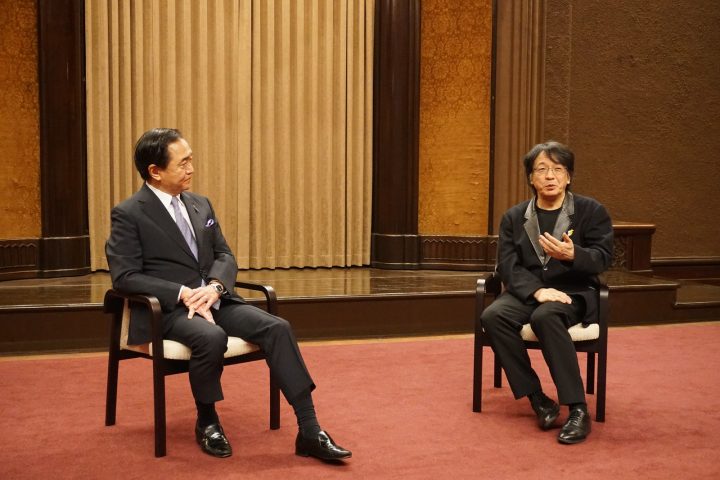
Mr. Numajiri:
As the Governor said earlier, we are the only professional orchestra based in Kanagawa Prefecture, which has a population of 9.2 million, so there is still room for us to attract new fans. Our neighboring Tokyo has a population of 14 million, but there are eight major professional orchestras alone. There is quite a lot of fierce competition.
Kanagawa Prefecture has an atmosphere of thirst for culture, and amateur orchestras, brass bands, and choirs are all very active. There are also many halls with excellent acoustics outside of Yokohama, so the Kanagawa Philharmonic Orchestra truly feels like it's nestled in a treasure trove. Their performance has been improving rapidly in recent years, making it an orchestra worth supporting.
Governor Kuroiwa:
That's right. There was a crisis that threatened the organization's survival, and the Kanagawa Philharmonic itself made various efforts to overcome it.
He went everywhere, from small concerts to elementary schools, and many other places, allowing people to enjoy music.
When elementary school students visit an elementary school and perform with the school orchestra, or when the Kanagawa Philharmonic suddenly plays their school song, even those who don't understand what's going on at first will suddenly realize, "Hey, I've heard this before," and be able to experience the charm of music and orchestras.
This led to a growing feeling that "Let's all support the Kanagawa Philharmonic Orchestra," and "This is an asset to our prefecture." I think this was a very powerful force.
Pushed by these things, the Kanagawa Philharmonic continued to grow.
As a result, the orchestra has risen in the rankings of "your favorite Japanese orchestra," all the way up to fourth place. This is something we are very happy about. We hope to continue to cherish this trend.
-Can you tell us what the Kanagawa Philharmonic needs to do in the future?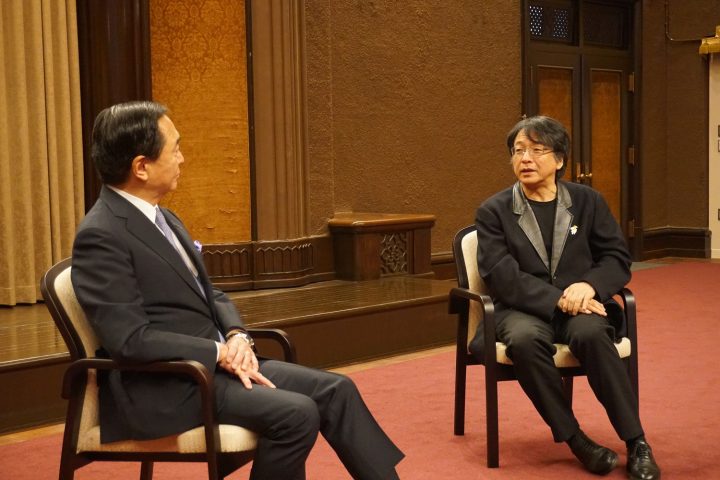
Mr. Numajiri:
Above all, we want to get the people of the prefecture to recognize us. We need to reduce the number of people who think, "The orchestra has nothing to do with me," even if it's just one person. To achieve this, I don't mind performing outdoors or on a boat. I would like to hold various types of concerts, such as concerts for children and beginners, and crossovers with other genres. Of course, it is also important to improve the quality of our regular concerts, which are the "face" of the orchestra.
We aim to ensure that the magazine rack in the living room of every household in the prefecture always contains a copy of the Kanagawa Philharmonic's annual program booklet.
Governor Kuroiwa:
Orchestras can be quite intimidating, so I think we can do more with people going out together and creating a more intimate atmosphere.
In fact, I think there are many mysteries when watching an orchestra performance. For example, what is the conductor doing? What is that person doing? I think that we don't really know.
Mr. Numajiri:
It doesn't make any noise, after all.
Governor Kuroiwa:
Can an orchestra play without a conductor?
There are times when you do things accordingly, right?
Mr. Numajiri:
When the performance is going well, I sometimes deliberately don't give any instructions.
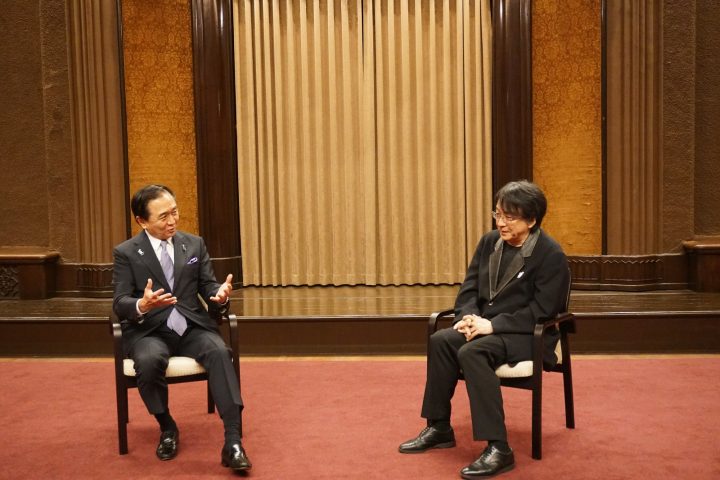
Governor Kuroiwa:
What exactly a conductor does is something that is a mystery to most people. If there is something that explains it, I think people will realize, "Oh! So that's how it's done."
When I was a newscaster, I once did a news program about the Matsumoto concert (music festival) that Seiji Ozawa holds every year. We brought the studio itself to the Matsumoto stage and had Seiji Ozawa come on stage after the concert, and we did a program about it, and I got to see a rehearsal. It was only after seeing a rehearsal that I really understood what a conductor does.
It's very easy to understand when you see the process of bringing everyone together in the same direction.
Mr. Numajiri:
For example, if the string and wind instruments don't quite mesh well, the conductor will prescribe something, such as asking the percussion instruments to be softer, or conversely, to be struck more clearly. Seeing such a scene will surely deepen your understanding of the orchestra. Kanagawa Philharmonic Orchestra rehearsals, held at Kanagawa Art Hall, are often open to the public for free, so I would definitely recommend you come and see one.
However, I myself don't really understand what conducting is, and when I was a student, I was conducting an orchestra rehearsal and the sound suddenly improved. I wondered why, and it turned out that Seiji Ozawa had come into the rehearsal room. Everyone suddenly started to sound better (laughs). I wanted to tell them to just make a good sound from the beginning, but in the end, it's not just the skill of conducting that counts, it's also about human qualities. That kind of thing is hard to see just by observing a few rehearsals.
Check out the information about the Kanagawa Philharmonic Orchestra, which has started a new tradition, here:
Kanagawa Philharmonic Orchestra Official Homepage
